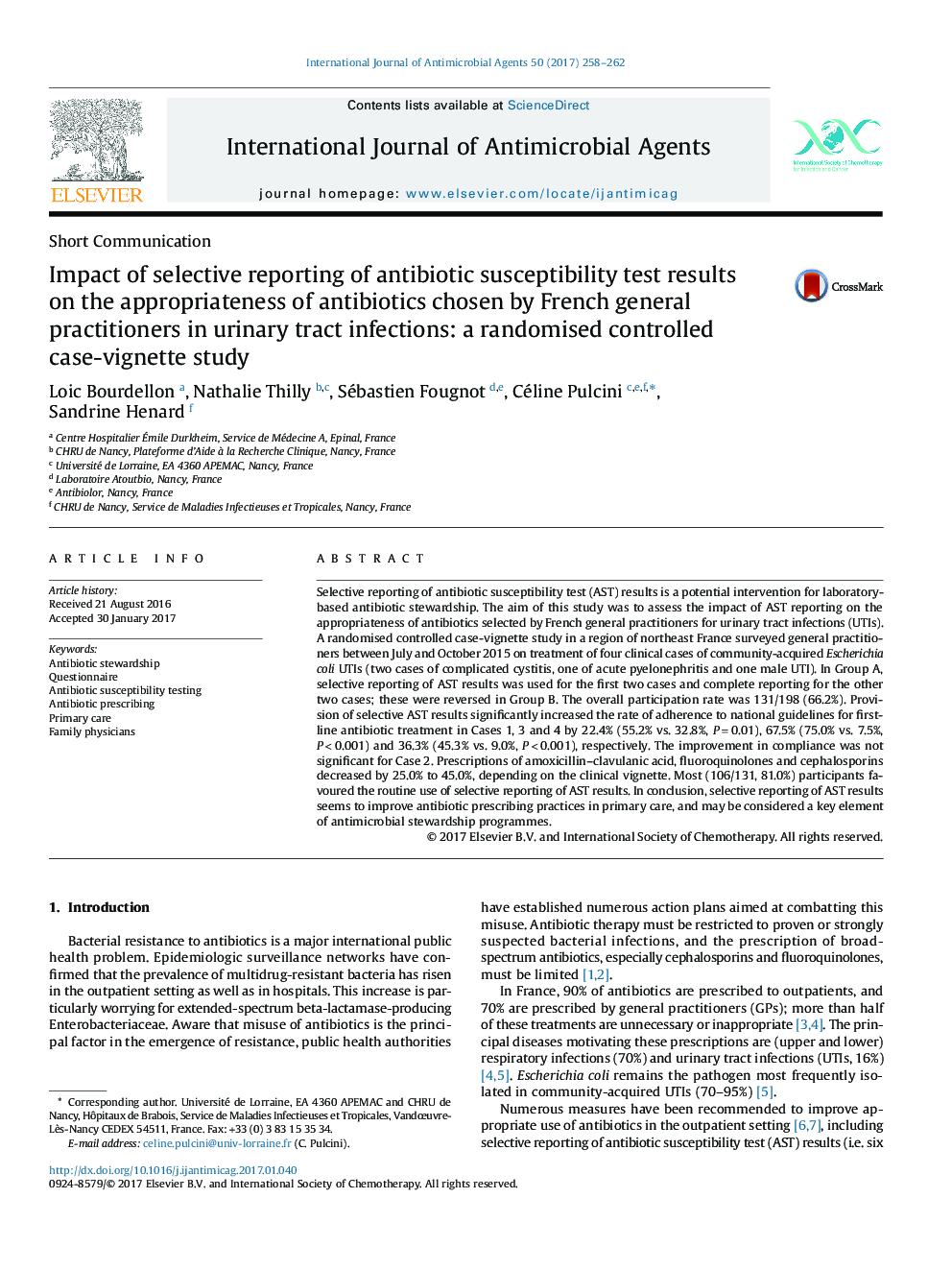| Article ID | Journal | Published Year | Pages | File Type |
|---|---|---|---|---|
| 5666952 | International Journal of Antimicrobial Agents | 2017 | 5 Pages |
â¢Selective reporting of antibiotic susceptibility test results is recommended.â¢This recommendation is based on a low level of evidence.â¢A randomised controlled case-vignette study was conducted among general practitioners.â¢Selective reporting significantly improved the quality of antibiotic prescribing.â¢Selective reporting also decreased the use of amoxicillin-clavulanic acid, cephalosporins and fluoroquinolones.
Selective reporting of antibiotic susceptibility test (AST) results is a potential intervention for laboratory-based antibiotic stewardship. The aim of this study was to assess the impact of AST reporting on the appropriateness of antibiotics selected by French general practitioners for urinary tract infections (UTIs). A randomised controlled case-vignette study in a region of northeast France surveyed general practitioners between July and October 2015 on treatment of four clinical cases of community-acquired Escherichia coli UTIs (two cases of complicated cystitis, one of acute pyelonephritis and one male UTI). In Group A, selective reporting of AST results was used for the first two cases and complete reporting for the other two cases; these were reversed in Group B. The overall participation rate was 131/198 (66.2%). Provision of selective AST results significantly increased the rate of adherence to national guidelines for first-line antibiotic treatment in Cases 1, 3 and 4 by 22.4% (55.2% vs. 32.8%, Pâ=â0.01), 67.5% (75.0% vs. 7.5%, Pâ<0.001) and 36.3% (45.3% vs. 9.0%, Pâ<0.001), respectively. The improvement in compliance was not significant for Case 2. Prescriptions of amoxicillin-clavulanic acid, fluoroquinolones and cephalosporins decreased by 25.0% to 45.0%, depending on the clinical vignette. Most (106/131, 81.0%) participants favoured the routine use of selective reporting of AST results. In conclusion, selective reporting of AST results seems to improve antibiotic prescribing practices in primary care, and may be considered a key element of antimicrobial stewardship programmes.
